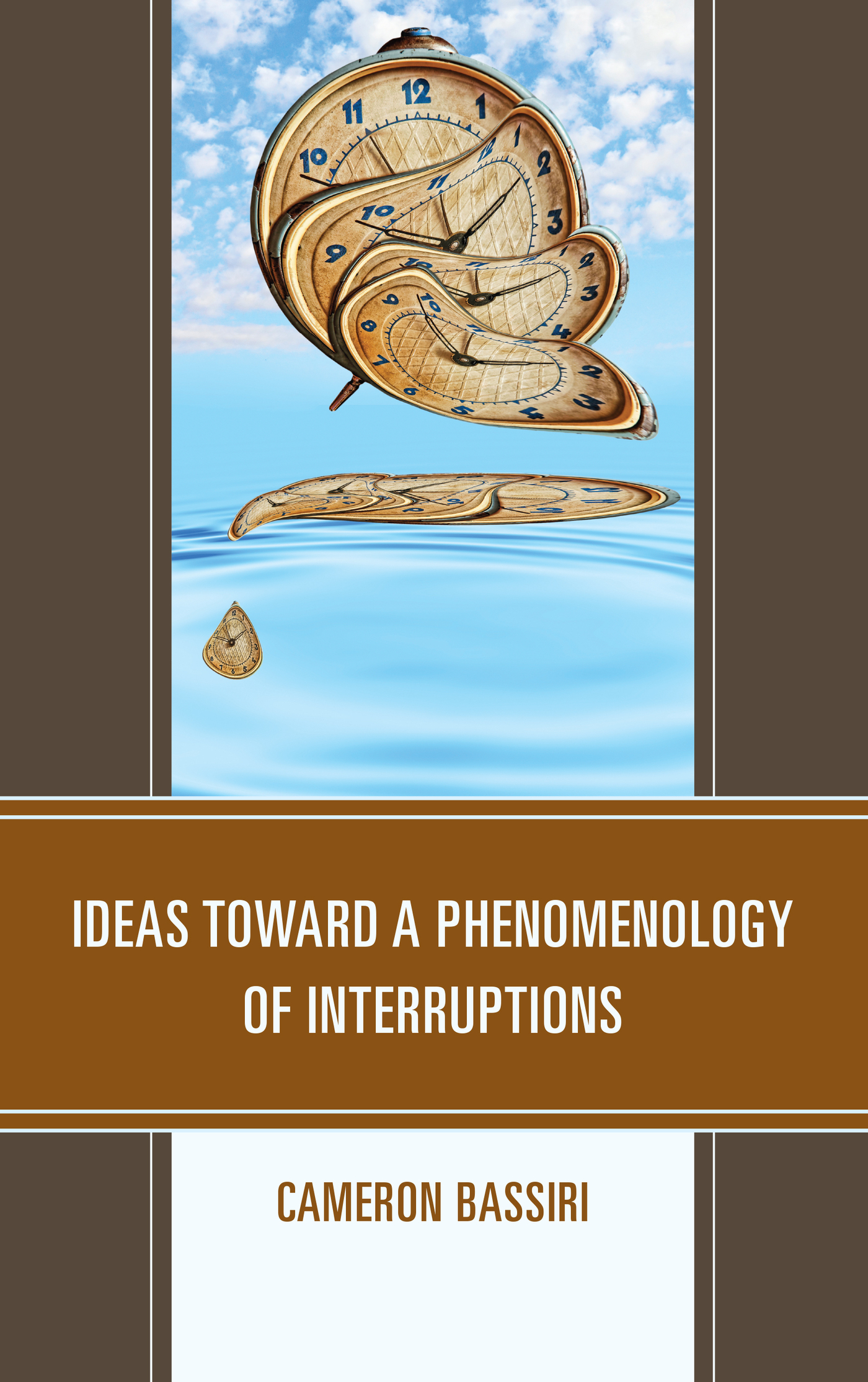Ideas toward a Phenomenology
of Interruptions
Ideas toward a Phenomenology
of Interruptions
Cameron Bassiri
LEXINGTON BOOKS
Lanham Boulder New York London
Published by Lexington Books
An imprint of The Rowman & Littlefield Publishing Group, Inc.
4501 Forbes Boulevard, Suite 200, Lanham, Maryland 20706
www.rowman.com
Unit A, Whitacre Mews, 26-34 Stannary Street, London SE11 4AB
Copyright 2018 by The Rowman & Littlefield Publishing Group, Inc.
All rights reserved. No part of this book may be reproduced in any form or by any electronic or mechanical means, including information storage and retrieval systems, without written permission from the publisher, except by a reviewer who may quote passages in a review.
British Library Cataloguing in Publication Information Available
Library of Congress Cataloging-in-Publication Data Available
LCCN 2018936187 | ISBN 9781498577267 (cloth : alk. paper) | ISBN 9781498577274 (electronic)
 TM The paper used in this publication meets the minimum requirements of American National Standard for Information Sciences Permanence of Paper for Printed Library Materials, ANSI/NISO Z39.48-1992.
TM The paper used in this publication meets the minimum requirements of American National Standard for Information Sciences Permanence of Paper for Printed Library Materials, ANSI/NISO Z39.48-1992.
Printed in the United States of America
Amor Vacui
Preface
The following text is a close and careful analysis of several core themes in the philosophy of Edmund Husserl with the aim of comprehensively addressing the question of the nature of subjectivity within phenomenology. The ultimate task in this book is to incorporate the theme of interruptions or discontinuity into phenomenology to develop a new area of phenomenology, what I have termed a phenomenology of interruptions, and to establish a new concept of subjectivity. In order to achieve this end, this book works through the central phenomenological concepts of parts and wholes, lived-experience, and time, while also incorporating an analysis of the essential, yet neglected, theme of dreamless sleep. This last theme, though acknowledged by Husserl and early phenomenologists such as Eugen Fink and Dorion Cairns to be of fundamental importance, is curiously lacking in the work of early phenomenology. And suspicious as this lack is, it is in fact consistent with the majority of accounts of subjectivity in western philosophy. There are, of course, exceptions, such as the passages found in Aristotles Physics which thematize the relation between time and motion, and the sections of John Lockes An Inquiry Concerning Human Understanding concerned with personal identity. However, on the whole, the tradition has remained blind to the paramount importance of the problem of dreamless sleep for an adequate understanding of the unity of the life of consciousness, the experience and perception of time, the status of the body while it sleeps, etc. In this book, I provide the necessary supplement to this lack in both western thought in general and phenomenology in particular. And ultimately, by integrating the theme of dreamless sleep as an interruption into an account of subjectivity, I have been able to develop the much needed, new concept of a fractured subject.
My book also has the goal of reawakening the spirit of phenomenological research and of conducting such research into a specific problem set. Thus, while this text rigorously engages the topics mentioned above as they were developed by Husserl over the course of his career, it is not just another commentary on the work of Husserl; it is also not a commentary on a particular philosopher or area of philosophy, which all too often in contemporary scholarship takes the form of a summary presentation of the content, working out internal inconsistencies, or of defending it against various criticisms. To the contrary, this book endeavors to breathe new life into the phenomenological treatment of the problem of consciousness, and to both critique and expand phenomenology in a direction that Husserl made possible, but did not himself follow. Furthermore, this treatment of the theme of consciousness places the present work in relation to other fields of contemporary philosophy. The question of the nature, or even the very existence of consciousness, has been and continues to be treated extensively in contemporary philosophy. In fields ranging from analytic philosophy of mind to Hegelian accounts of the historical character of self-consciousness, the theme of consciousness has been ascribed a position of central importance. The phenomenology of Husserl, as I show in this book, offers a unique perspective on this contemporary philosophical problem, and is sensitive to various concerns, such as the lived-experience of subjectivity as it sleeps, which contemporary accounts have not appreciated. Thus, while he has often been critiqued for being unnecessarily obscure and technical, the following book demonstrates not only the importance, but the necessity, of Husserls thought and the phenomenology he made possible in order to systematically inquire into the whole of the life of the subject, that is, in both its waking and sleeping lives.
Acknowledgments
This book is the result of several years of work and would not have been possible without considerable help along the way. I would like to begin by thanking the Department of Philosophy and Religion at American University. Throughout the years, it has continually provided a collegial community of scholarship and an ideal atmosphere for philosophical research. In particular, I would like to thank the current chair, Dr. Ellen Feder, for her tremendous help with this project and her constant encouragement to see it through to its final, complete form. I was also fortunate to be able to teach a summer seminar on the phenomenology of time during the first summer session in 2018. This seminar afforded me the opportunity to deepen my knowledge of the topic, revise the work I had done, and strengthen my research and manuscript. This course itself was made possible by the generous donation of the Donoghue family. Their act of kindness, rooted in a genuine and all too rare appreciation for the humanities and knowledge for its own sake, allowed the course to go through and for me to conduct the necessary research to complete the project. I offer them my sincerest thanks and am very lucky to have gotten to know them over the years. I would also like to thank Dr. Richard Velkley, who has served as a mentor, guide, and friend for over a decade now. It was in my work with him at Catholic University that I truly came to an understanding of several of the problems and accomplishments of contemporary phenomenology. He introduced me to the importance of both working carefully through the tradition and philosophical research into concrete problems, which have since informed my approach to philosophy. Finally, I would like to thank my parents and my sister for all of their love and support. They have always encouraged me in my love for philosophy and shown great interest in the areas of philosophy I have pursued. Without them, the present work would not have been possible. For all of this and much more, I dedicate this book to them.
Introduction
The Renewal of Transcendental Phenomenology and the Emergence of a Phenomenology of Interruptions
The problem of unity occupies a central position in Husserls phenomenology. It is a core phenomenological problem that Husserl treated extensively over the course of his career. This problem itself takes several forms. Within the early treatments of the theme, treatments which strictly speaking were not yet carried out in complete phenomenological purity, the problem of unity, its establishment and internal structures, is treated through an analysis of part-whole relations. The Third Logical Investigation provides an extensive analysis of the different types of parts, the relations between the different types of parts, the relations between the varieties of parts and wholes, etc.
Next page
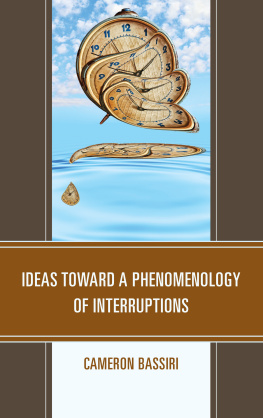

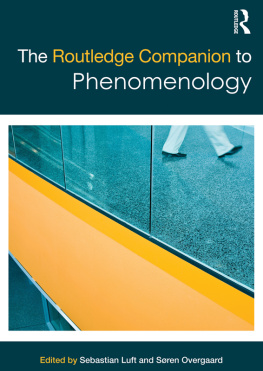

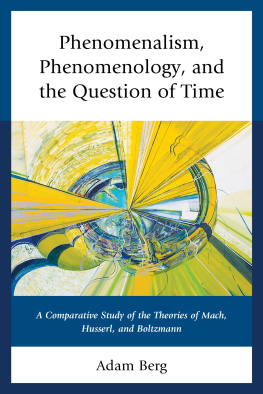
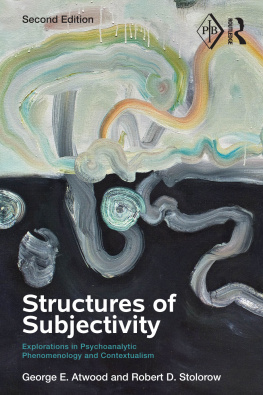
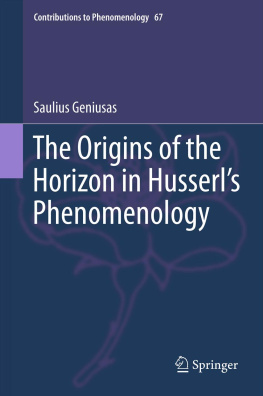
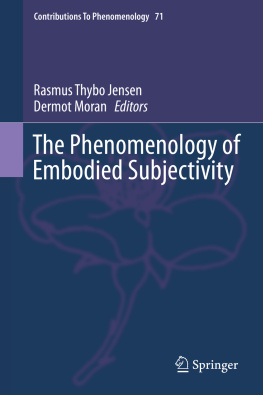
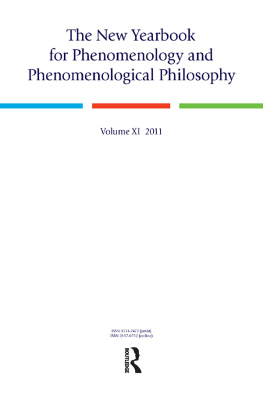
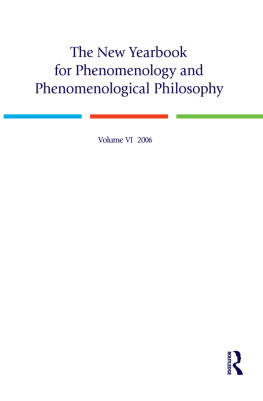
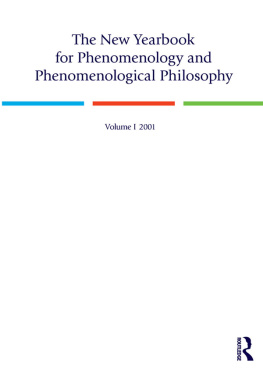
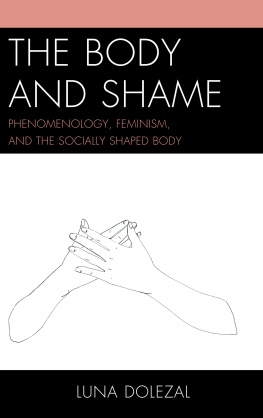
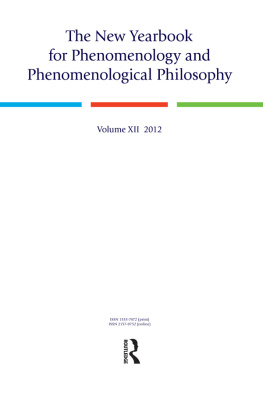
 TM The paper used in this publication meets the minimum requirements of American National Standard for Information Sciences Permanence of Paper for Printed Library Materials, ANSI/NISO Z39.48-1992.
TM The paper used in this publication meets the minimum requirements of American National Standard for Information Sciences Permanence of Paper for Printed Library Materials, ANSI/NISO Z39.48-1992.